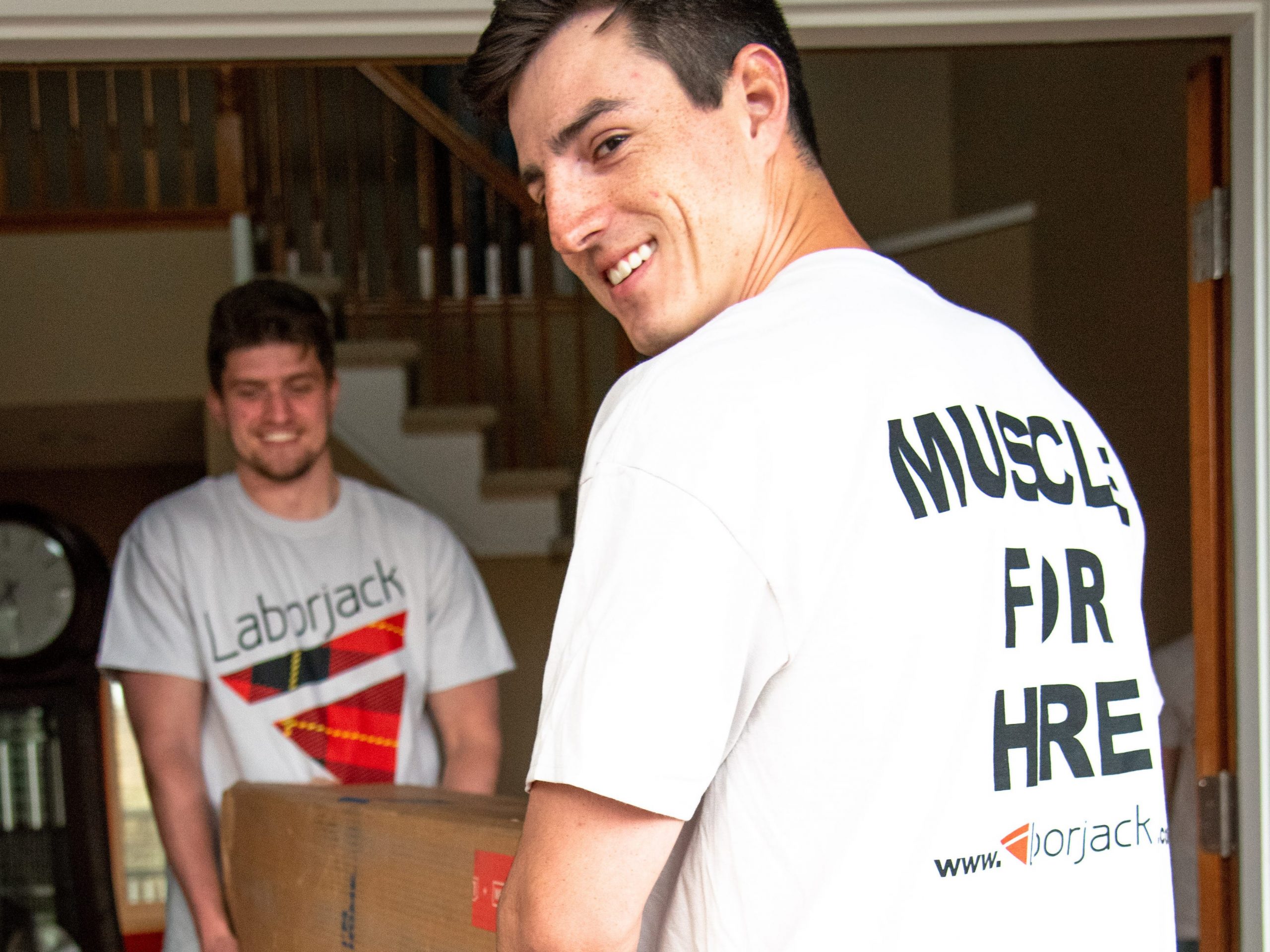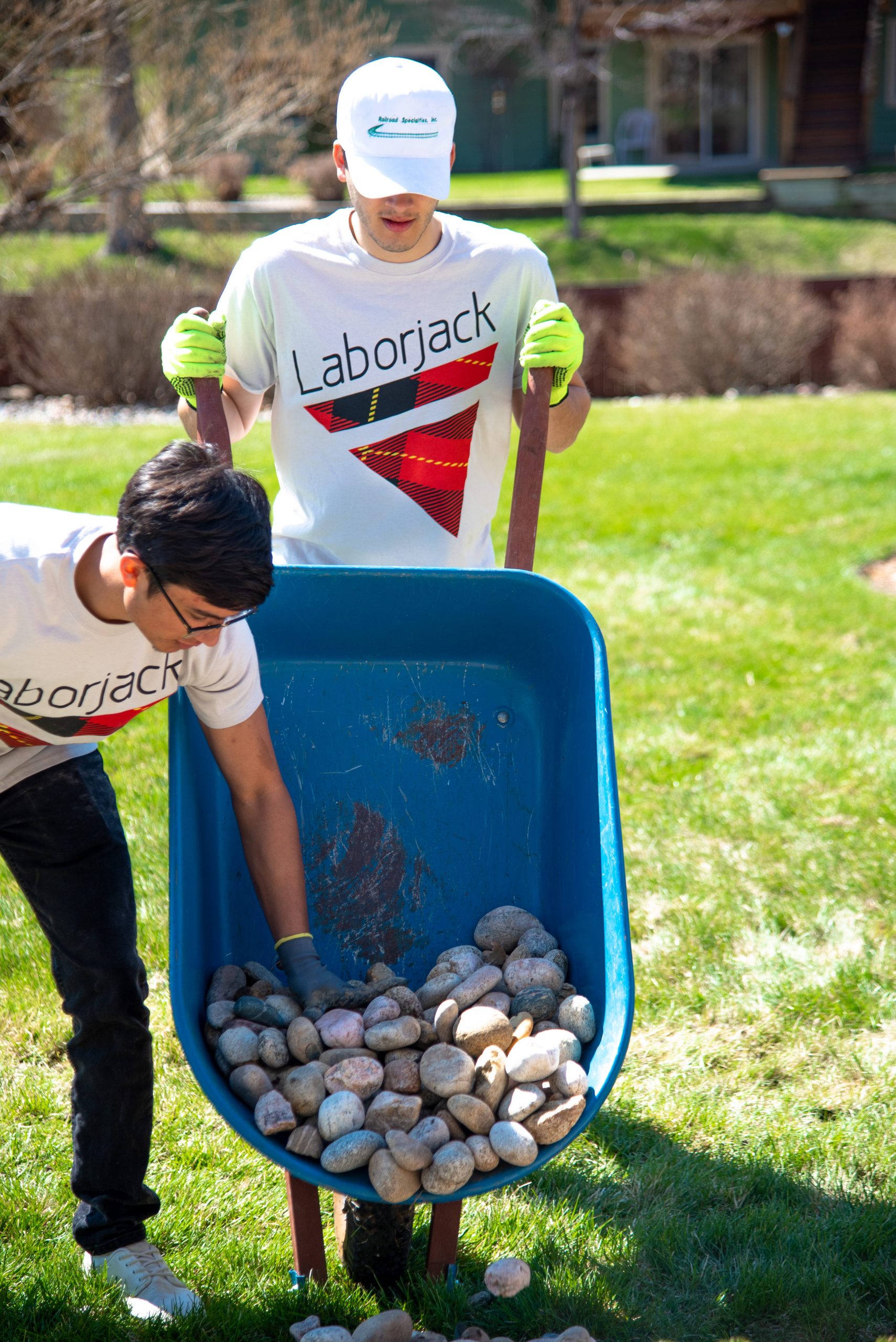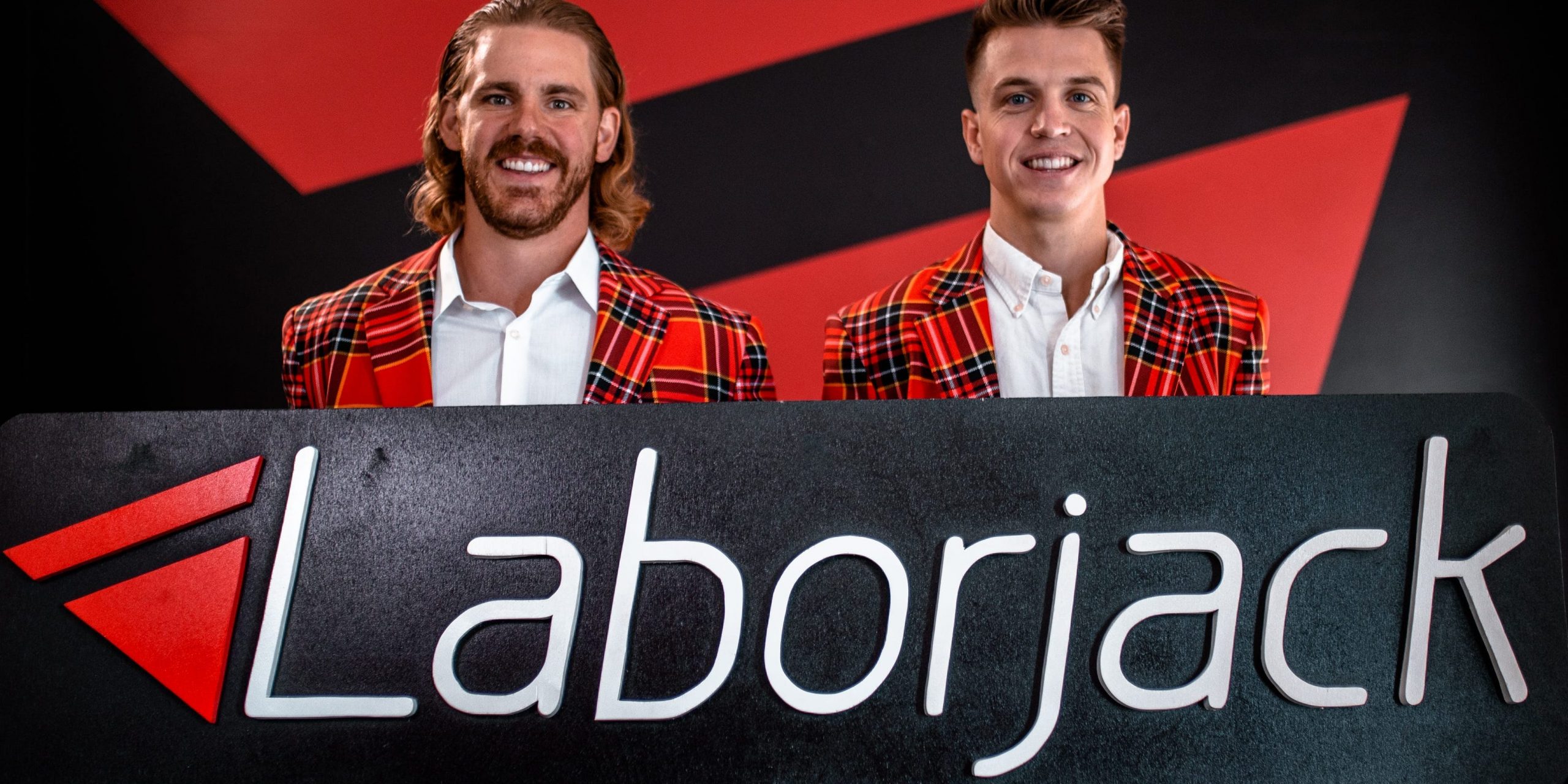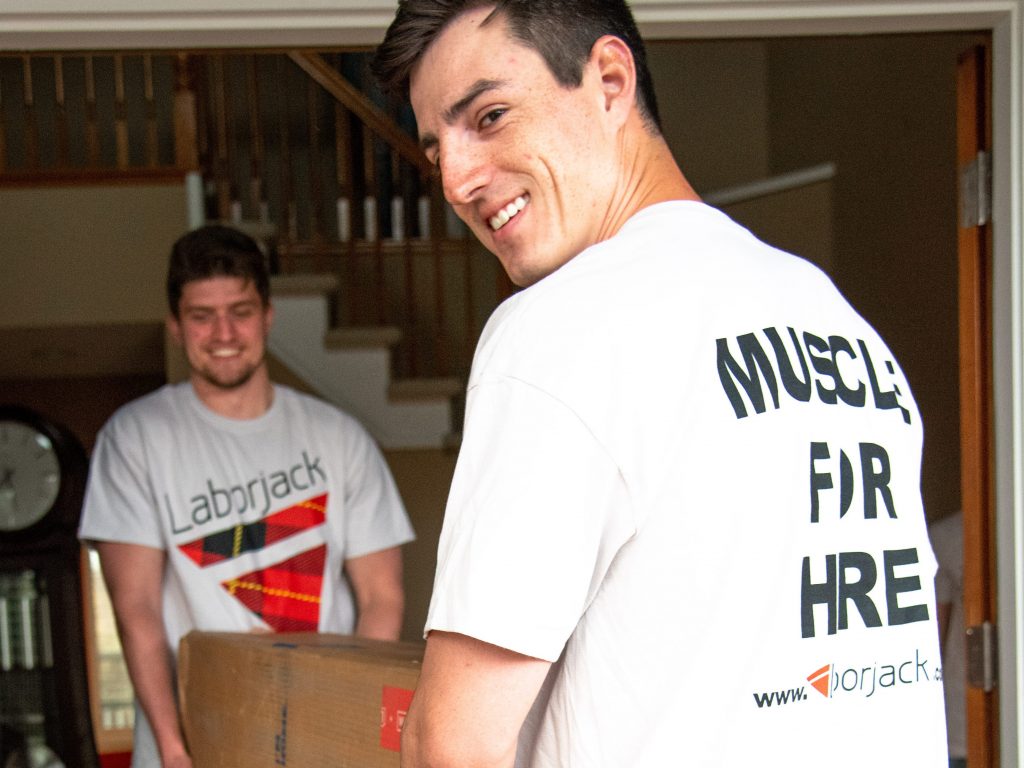
Laborjack
- Laborjack said it can't find enough gig workers to meet soaring demand for its services.
- The Colorado-based company boosted staff wages but said there's huge competition for labor.
- Clients are so desperate for labor that they're no longer price-sensitive, its founders added.
- See more stories on Insider's business page.
A labor-for-hire company in Fort Collins, Colorado, says it's missing out on huge chunks of revenue because it can't find enough workers to take more jobs on.
Blake Craig and Josh Moser, founders of Laborjack, told Insider that more people had been applying to work at the company during 2021, but that it still wasn't enough to meet the massive growth in demand for its services.
"Good help is hard to find," Craig said. "And it's even harder right now."

Laborjack
Laborjack hires out labor to help with moving, landscaping, and general staffing – often to individuals who need extra help with projects.
"But right now, the bulk of our business is focused on helping other businesses that can't get the staffing that they need," Craig said. This includes delivery, brewing, and construction companies.
Around 80% of its workers are college students or recent graduates. But some of them have full-time jobs and use their gig work at Laborjack to supplement their income. During the pandemic, they've been working more hours at their main jobs and don't need the side income anymore, Craig said.
In June, just over 200 workers completed a shift on Laborjack's platform - but nearly a fifth of these only did one job.
This US is currently in the midst of a huge labor shortage that's causing some businesses to cut operating hours, slash production, and raise prices. Joblist CEO Kevin Harrington told Insider that it's primarily driven by people in entry-level, hourly-paid, and customer-facing jobs.
"Hiring had never been an issue for us until about February of this year," Laborjack's Craig said. "There's a lot of other people going after the same talent that we are - not only new workers but also our existing workforce."
"There are a lot of people fishing in a small pond," he added.
The demand for Laborjack's services roughly tripled over the past year, while the number of job applicants has increased by just a quarter, Craig said.
"We're still struggling to keep up with the demand that's coming in for the service we offer," Moser said.
This is despite Laborjack rolling out its biggest set of worker perks yet. This includes increasingly average payouts, made up of wages and on-job bonuses, to just over $26 an hour. The company is dishing out $75 hiring and referral bonuses if a new hire completes five jobs, too.
Businesses are 'on the verge of desperation'
Laborjack has made its services more expensive to cover the higher wages. Moser said its clients had changed their pricing tolerance "drastically" over the past three months and were no longer price-sensitive.
"They just need to get people in the doors because otherwise their business will collapse," Moser said. "They're on the verge of desperation."
Moser said that, for example, the event and trade show industry had rebounded massively with the reopening of the US economy. "They're chomping at the bit for any amount of workers we can get them."

Laborjack
Laborjack's June revenue is up around 90% year-over-year, but "we could be growing more if there was more labor on the market," Moser said. Laborjack is turning down jobs worth up to $2,500 each day and is struggling to balance its B2B and consumer sides, which are "both in full swing," Moser said.
"Our margin has decreased despite the fact that we're increasing prices, just because we're trying to pay out all these bonuses," Craig added.
